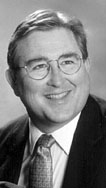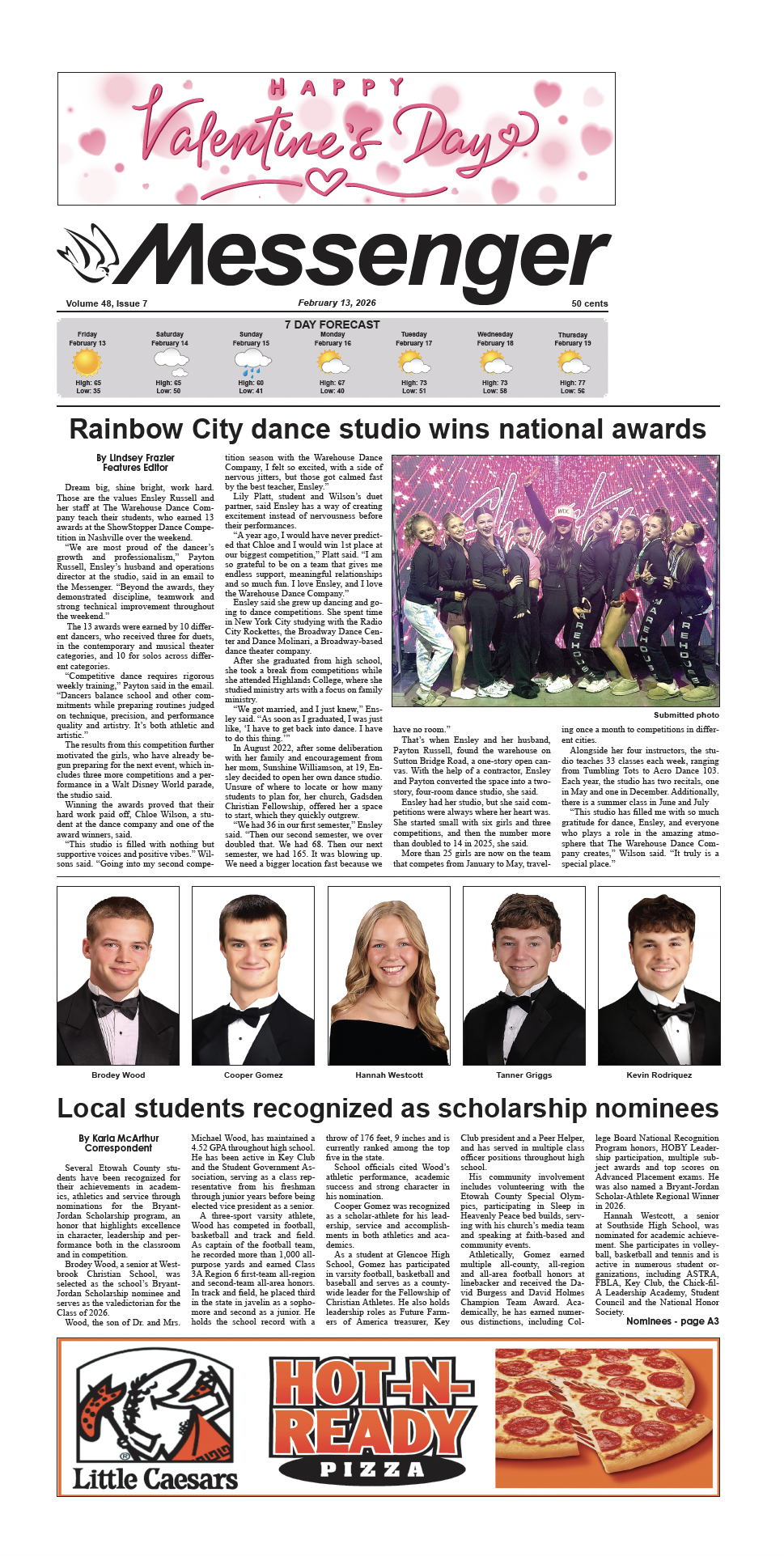The Vagabond recently visited the State Archives in Montgomery, where he found several photos of Etowah Historical Society founder Mary Harrison Lister. The following is a continuation of a book written by Elbert L. Watson about Mary Harrison Lister:
“We all know that the Etowah County Historical Society is here because Mary Harrison Lister was determined that such an organization should exist. It was her own creation, and she guarded its interests jealously. No “joiners” or opportunists were eligible for society privileges.
“Mrs. Lister, of course, tried to stay as much in the background as possible, but if she detected that something was contrary to the procedures she felt were in the best interest of the society, her nature would not permit her to remain uninvolved. She knew how to straighten out the situation, and I don’t recall anyone waging extended warfare with her. I certainly did not!
“I still smile, even laugh, over the discomfort Mrs. Lister gave me with regard to the society’s project to erect the John Wisdom marker on the lawn of the recreation center overlooking the Coosa River at the Broad Street Bridge. I was appointed chairman of the Marker Committee, with Mr. Marvin Small and Hazel as members. We proceeded with alacrity and garnered in a good deal of information from the Alabama Historical Association about its marker program.
The committee agreed that the highway type marker would be suitable for our local purposes. Accordingly, I read the Committee’s report and recommendation to the membership, which met in March of 1957 at Claude Manderson’s [home].
“No one spoke out against our recommendation, so I assumed that we were in complete harmony with the wishes of the society. Throughout the evening, everyone seemed to be in an unusually festive mood in the Manderson’s spacious recreation room. I know that I was! Perhaps my pre-occupation with Hazel over the ping-pong table made me oblivious to Mrs. Lister’s facial expression. Had I been very smart, I would have checked on it from time to time.
“Several days passed before the gathering storm of indignation swept across the Coosa River to the East Gadsden hinterlands. The new “Committee Report,” given to me by Mrs. Lister over the telephone, called for the erection of a sandstone type marker with a marble inset honoring Wisdom. In a not so subtle manner, she got the message through to me that our recommendation belonged down the drain, insofar as the majority of the disappointed members were concerned.
“Who was I to buck public opinion? I do not recall what became of the committee, but a few days later Mrs. Lister and I went to Oneonta to order the slab of sandstone from a stone quarry. It made a beautiful monument to the memory of a great Etowah Countian, and I was proud to be the master of ceremonies the following June at the dedicatory service.
“It was during this same year that Glen Sedam served as president of the society, and I as vice-president. I am sure that if Glenn were here tonight he would not mind my telling about this incident of his personal distress, because we all know that he and Mrs. Lister were devoted to each other. The only problem of communication seemed to be that she did not quite understand or accept certain of his Yankee proclivities.
“At any rate, Glenn entered upon his presidency with ambitious ideas of his own as to the future course of the society. He soon ran into an immovable object!
“The society year was about three months old when Glenn asked me to stop by the Gadsden Times one afternoon to talk with him about a matter pertaining to the organization. Glenn went into detail about his plans but indicated that there was some problem that he could not overcome. At this point, I asked him if the society’s constitution could not help him out. To this suggestion he replied with a broad smile: “Elbert, didn’t you know that the constitution lives at 218 Harts Avenue?”
Mr. Leslie King also served as president of the society during the 1958-59 year. I had many wonderful and fun-filled experiences with Mr. King and esteemed him as a gifted, rhetorical speaker who could charm anyone, particularly those members of the feminine sex.
“Only once did I know of Mr. King fumbling with his speaking ability. That was in the early months of his administration, when he made the unfortunate slip of mentioning to Mrs. Lister that it might be advisable to pattern some of the society’s operation after that of the downtown Lion’s Club. Fortunately, Mr. King was also a careful student of human nature, and he made his comeback by keeping a watchful eye on that handsome Aloha Lodge fireplace, so that it would not go lacking for want of healthy logs.
“The year 1958 was both a happy and uncomfortable one for Mrs. Lister. By now, the society was etching an important mark for itself on the affairs of the community. A high point of the year for the members was to host the annual meeting of the Alabama Historical Association that April. Mrs. Lister never sought, nor did she favor, aligning the society with the state organization, because she did not want the group to be subordinate to a higher authority that might impose certain policies incongruous with local interests. But she did consider it a signal honor for the state organization to meet here, and she left few stones unturned in putting into motion a near perfect piece of organization and planning.
“I can still see the lovely manikins, statuesque Princess Noccalula and pensive Emma Samson greeting us as we entered and departed the ballroom of the Reich Hotel. To Emma’s flowing skirt, Mrs. Lister attached these lines from a poem written by the late John Trotwood Moore, a former Tennessee State Librarian: ‘She stood at the General’s stirrup and this was all she said: ‘I’ll lead the way to the ford today-I’m a girl; but I’m not afraid.’
“At the meeting, I read a paper entitled Gadsden from Teepees to Steamboats, which gave a running historical sketch of the city. Mrs. Lister, along with most of the other Gadsdenites present, attended this session, but she left immediately after I spoke and thus missed one of her grandest moments. During the question and answer period, Mr. James Bragg, who sat near the rear of the room, abruptly attacked the Emma Samson story as a myth. I had never heard of such heresy as this before, particularly since it came from a man who at that time was a Gadsden resident.
“I recovered and proceeded to cite various sources, one of which was the Mary Blair account which Mrs. Lister had recorded and notarized. Mr. Bragg, with his resonate, staccato voice was persistent, however, and cited an account from A. C. Roach’s book, Prisoner of War. Roach, a member of Streight’s raiding party, insisted that it was Rufus Samson who led Forrest to the forgotten ford. He also claimed that young Samson had been one of Streight’s prisoners, but was released that morning by pledging that he would not assist the Confederates.
“Fortunately, I had read the book myself and tried to tell Mr. Bragg that in my opinion, it was a biased record, written in 1864 when those hardy raiders were still blushing a bright red over their capture.
“Mr. Bragg rejoined, ‘Are you disputing the word of an officer who served in the United States Army?’
My reply was, ‘So far as I am concerned, he was still a Yankee.’
“With that, everyone laughed, except Mr. Bragg, and the session broke up.
“When I ran into Mrs. Lister later in the day, she had already heard of the verbal exchange and was moving her big guns into action. If Mr. Bragg had accosted her during that meeting, she would have leveled him with one mighty blow in the mismatch of the year. Fortunately for him, as he told me later, someone else got to him first and, on this point at least, he withdrew into his entrenchments for the remainder of the meeting.
“Miss Mary was a peerless organizer who spared no effort in succeeding in her projects. Whether she overdid herself on this occasion or not, I cannot say, but it was only a few days later that she noticed an uncomfortable sensation in her throat. At first she passed it off as indigestion, but the condition persisted so she finally went to her physician, Dr. John B. Bass, for a thorough physical examination. The report confirmed that her heart was causing the problem. Although the condition varied from time to time, it grew increasingly severe thereafter and by the time of her death, as we shall note later, she was plagued with pain night and day.
“But despite her declining physical condition, it was not Mrs. Lister’s disposition to burden other people with her problems. To the contrary, she invited the rest of us to share our perplexities with her. People were her life, and she delighted when they brought their joys and sorrows to her. And if she felt they had been wronged in any degree, she vigorously went to their defense. I have known of local political figures whom she admired turn to her when it appeared their darkest hour was near. She walked the rest of the way with them until the light reappeared, or else there was nothing left that she could do.
“The year 1959 was a momentous one for me. By now, our congregation had outgrown its old facilities, so we sold our property and began construction of a handsome new edifice on the Piedmont Cutoff. Mrs. Lister showed genuine interest in this project, which got underway during the fall of 1958.
“Of necessity, my long visits with her were curtailed during this period because I spent a good deal of time myself working at the church. The roof, especially, absorbed my attention and literally glued me to it one time when I suddenly discovered that I had a problem with acrophobia. I reported to Mrs. Lister regularly, of course, about the building’s progress, and brought her over several times to watch as the edifice neared completion.
“Dedication Day, February 22, 1959, was a proud moment for me. Sitting on the platform in the new sanctuary, I could not help but think that we were only four and one-half years removed from the time when we had little standing in the community. Now, seated before me were over 200 people who had come from all over Gadsden to share in the happiness of this moment. Many fine civic and religious leaders attended, among them Mayor Hugh Patterson and Dr. Denson Franklin, who both made appropriate remarks. I was gratified to see many of my Historical Society and Civitan Club friends. Mr. King slipped in late.
“But to my right, seated about three-fourths of the way back at the end of her pew, was the lady whom I knew would not have missed this occasion for the world. The happiness that Mrs. Lister radiated told me full well what this day meant to her.”




